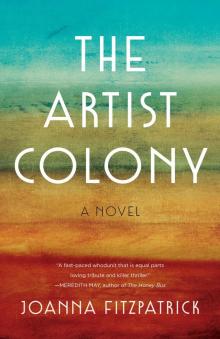Ten Doors Down


Author: Tickner, Robert;
Category: Other2
Published: 2020
Series:
View: 183
Read OnlineThe story of a federal minister’s remarkable reunion with his birth parents.
Robert Tickner had always known he was adopted, but had rarely felt much curiosity about his origins. Born in 1951, he had a happy childhood — raised by his loving adoptive parents, Bert and Gwen Tickner, in the small seaside town of Forster, New South Wales. He grew up to be a cheerful and confident young man with a fierce sense of social justice, and the desire and stamina to make political change. Serving in the Hawke and Keating governments, he held the portfolio of minister for Aboriginal and Torres Strait Islander affairs. Among other achievements while in government, he was responsible for initiating the reconciliation process with Indigenous Australians, and he was instrumental in instigating the national inquiry into the stolen generations.
During his time on the front bench, Robert’s son was born, and it was his deep sense of connection to this child that moved him at last to turn his attention to the question of his own birth. Although he had some sense of the potentially life-changing course that lay ahead of him, he could not have anticipated learning of the exceptional nature of the woman who had brought him into the world, the deep scars that his forced adoption had left on her, and the astonishing series of coincidences that had already linked their lives. And this was only the first half of a story that was to lead to a reunion with his birth father and siblings.
This deeply moving memoir is a testament to the significance of all forms of family in shaping us — and to the potential for love to heal great harm.
Robert Tickner had always known he was adopted, but had rarely felt much curiosity about his origins. Born in 1951, he had a happy childhood — raised by his loving adoptive parents, Bert and Gwen Tickner, in the small seaside town of Forster, New South Wales. He grew up to be a cheerful and confident young man with a fierce sense of social justice, and the desire and stamina to make political change. Serving in the Hawke and Keating governments, he held the portfolio of minister for Aboriginal and Torres Strait Islander affairs. Among other achievements while in government, he was responsible for initiating the reconciliation process with Indigenous Australians, and he was instrumental in instigating the national inquiry into the stolen generations.
During his time on the front bench, Robert’s son was born, and it was his deep sense of connection to this child that moved him at last to turn his attention to the question of his own birth. Although he had some sense of the potentially life-changing course that lay ahead of him, he could not have anticipated learning of the exceptional nature of the woman who had brought him into the world, the deep scars that his forced adoption had left on her, and the astonishing series of coincidences that had already linked their lives. And this was only the first half of a story that was to lead to a reunion with his birth father and siblings.
This deeply moving memoir is a testament to the significance of all forms of family in shaping us — and to the potential for love to heal great harm.
 Empress of Forever
Empress of Forever Wrath (Part II): A Mafia Romance (Esposito Series Book 2)
Wrath (Part II): A Mafia Romance (Esposito Series Book 2) Dream Mountain
Dream Mountain The Vampire's Daughter
The Vampire's Daughter Roots of Wood and Stone
Roots of Wood and Stone The Hush Society Presents...
The Hush Society Presents... The Bower Bird
The Bower Bird The Artist Colony
The Artist Colony